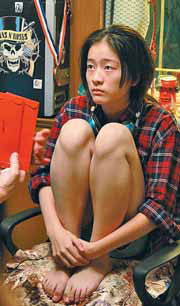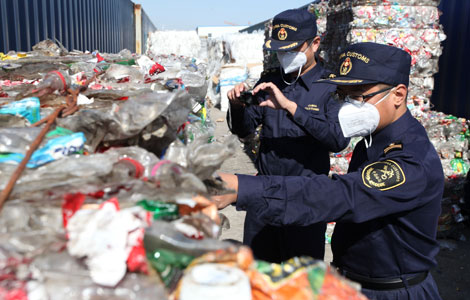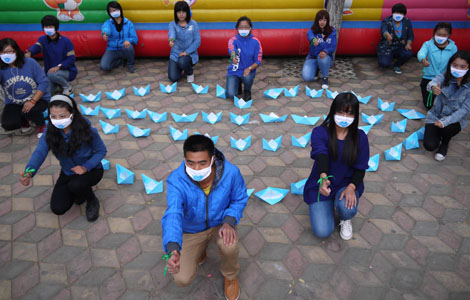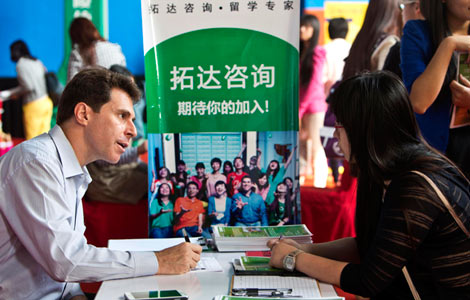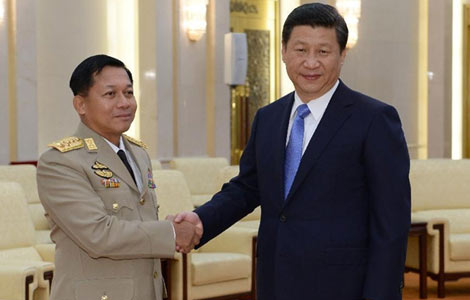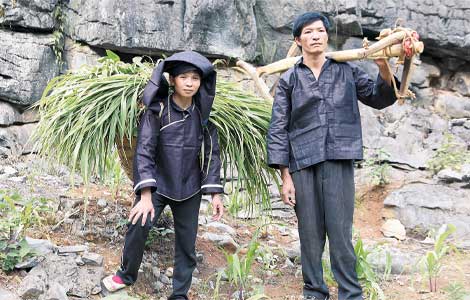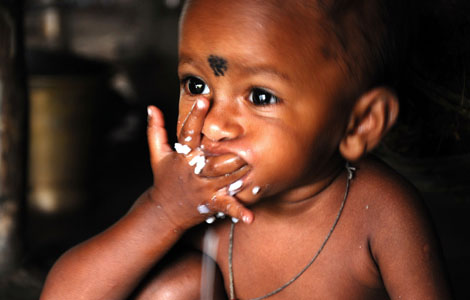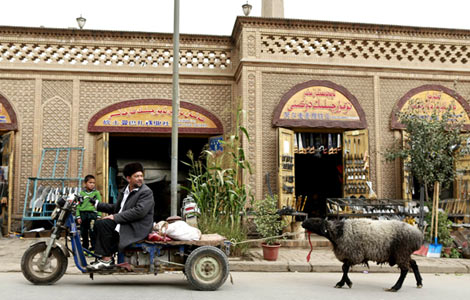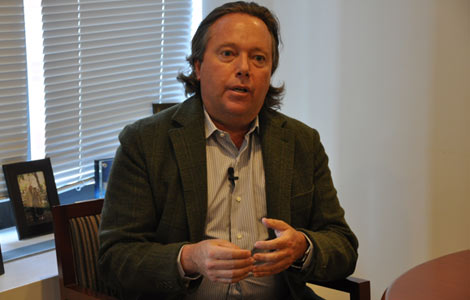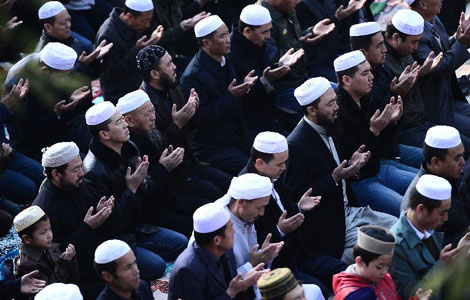Busan festival screens the best of Asian cinema
Updated: 2013-10-17 07:13
By Mathew Scott (China Daily USA)
|
||||||||
Aaron Kwok is a man who knows when to pull out all the stops, which is no doubt why the multi-award winning star arrived at the 18th Busan International Film Festival a day before any of the other main guests turned up.
The red-eye from Hong Kong to South Korea's second city can leave the most seasoned traveler feeling less than 100 percent, even 24 hours on from the flight. But Kwok took to the stage looking immaculate and handled the festival's opening ceremony like a seasoned pro.
It was a surprise to learn that it was Kwok's first time as an MC - anywhere. But the actor says there was never any chance he might decline the invitation when it came. The two most important factors in agreeing to the role, says Kwok, was the fact that it was the first time it had been offered to a Chinese man - Tang Wei was the first Chinese woman last year - and then there's the important role the Busan event plays in Asian cinema.
"Many filmmakers and directors and artists can come here to share quality movies with audiences, and the movies that have been selected to screen in Busan normally go on to perform well in the marketplace," says Kwok. "They have a huge spotlight on them as the festival's influence stretches now beyond Asia and out into the world."
This year's star-studded Busan festival, which came to a close last Saturday, featured 300 films and sold just over 217,000 tickets during its 10-day run. Organizers have long championed their role in introducing the work of independent Asian filmmakers to the world and they have long looked to China as they try to identify emerging talent.
|
A scene from Chinese movie, Einstein and Einstein, which had its world premiere at the 18th Busan International Film Festival. Provided to China Daily |
There was a strong Chinese presence throughout the event's various programs and on into the festival's sideline Asian Film Market, which aims to help filmmakers get on with the business of making movies.
Kwok, who also had his Fei Xing-directed thriller Silent Witness screening, was joined in the spotlight by the likes of Jia Zhangke, who brought his gritty A Touch of Sin to town, and Cao Baoping, whose compelling coming-of-age drama Einstein and Einstein had its world premiere.
Yu Lulai's short film Brother and the Lee Leo-directed animation Bonta were proof of the diversity being found now across all levels of Chinese cinema and there was plenty of attention at the AFM being paid to the Beijing Film Commission's booth - the first time the organization had attended the event. The government-run Korea Creative Content Agency also organized a seminar themed "The Future of Cooperative CG/VFX and S3D Technology Between Korea and China" that gave 10 local companies a chance to learn about the business opportunities opening up as the Chinese market grows, especially for the effects-laded 3-D films that are proving so popular with the new generation of audiences.
There was plenty to thrill audiences in Busan, too, from the world premiere of Korea's "Screen X" cinema, which gives audiences a 270-280-degree panoramic experience with the screen extending far into the left and right cinema walls. The first film to use the technology, The X, was light on plot and heavy on effects as the filmmakers tried to impress. Then there was the majesty of Korean director Bong Jong-ho's English-language thriller Snowpiercer, a ground-breaking international co-production that has been a surprise local hit - and was the first ticket most visiting guests tried to secure.
The festival's main New Currents award, which offers two prizes to first- and second-time Asian filmmakers, was handed to two films about modern versions of love. Korea's Ahn Seon-Kyong's Pascha looks at the relationship between a 40-year-old woman and her 17-year-old lover, while Mongolia's Byamba Sakhya's Remote Control focuses on one neighbor's obsession with another.
Cinema-goers thrilled to the 71-film retrospective of the work of 77-year-old Korean director Im Kwon-taek, who used the festival to announce plans to shoot his 102nd film. Jia was just one of many visiting directors to be caught sneaking into the back rows of screenings and declared after one that Im had been a huge influence on his own career and his desire to focus on aspects of his own society.
One of the other great surprises for audiences was the unscheduled arrival of two-time Oscar-winner Quentin Tarantino, who sat alongside Korea's Bong for an engaging Open Talk session in which he revealed the delight he experienced in seeing the Chang Cheh-directed martial arts classic The One-Armed Swordsman on the big screen the night before.
The American explained how he had grown up under the influence of Chinese filmmakers, including Huang Feng and the martial arts films he made for the Golden Harvest studio in Hong Kong.
He might have been speaking for organizers when he left the stage urging his audience to see "as many films as you can".
Contact the writer at sundayed@chinadaily.com.cn.
For China Daily
(China Daily USA 10/17/2013 page8)
Most Viewed
Editor's Picks
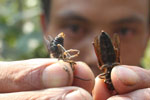
|

|

|

|

|

|
Today's Top News
US debt impasse ending, Obama to sign bill
Facebook goes fishing in China
Michigan auto czar leading trade trip to China
Yuan gains the most in 20 years
Tibet avalanche claims 4
First interprovince subway route opens
US expert finds job 'rewarding'
Trending news across China
US Weekly

|

|
